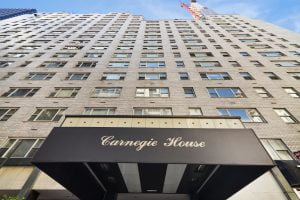9 Expert Tips For Buying A Second Home
Go Back To Previous PagePurchasing a home for the second time may seem like an easy thing to do since you already have experience. Some families dream of owning a second home, such as a family vacation house. But the opportunity to earn income from a second property is substantial. Therefore more and more vacationers prefer renting homes to staying at hotels or other typical commercial accommodations.
However, buying a second home for investment can be tricky. Let’s discuss Buying A Second Home to rent or buying a second home for investment. Before deciding if getting a second home is worth it, here are some tips and reminders to help you make informed decisions:
1. Avoid Impulse Buying
Suppose you’re on vacation and enjoying the accommodation, the local sights, and your budget. A sudden inspiration came, and now, you’re scouting.

The rear on African American young just-married couple standing in the house’s yard, hugging and observing the second floor.
For a possible second home that you can buy nearby, so you don’t have to stay at a hotel. Begin searching websites and Buckeye homes for sale for your next home-away-from-home.
If you plan to get another property, thoroughly research properties before buying anything.
While you have the money, it’s essential to consider your finances if you can afford to pay for it. Consider the monthly expenses on top of your other costs and if the property is in good condition.
You’ll only be wasting hard-earned money if the house doesn’t fit your lifestyle.
2. Look For A Local Real Estate Agent
When buying property in NYC or any state, it’ll help to seek the assistance of a real estate professional when looking for a second home at a specific location. Real estate remains local; agents will know more about a particular area than the last agent you worked with.
The local agent will also be able to share more about the local market so you can make informed decisions if you’re shopping for a home in the right place.
3. Consider The Location
If you want a vacation home that your family will use often, location will matter along with key factors at this point. Most families will drive up to three hours to get to their second property.
You and your family can make a quick getaway, and the trip won’t last long. There would be no need to bring too many things along as well.

Happy mixed-race daughter hugging the belly of her expecting mother while relaxing on a couch at home—African girl listening to baby movements while embracing a pregnant woman. A pregnant black mom and her future sister are chilling together on the sofa at home.
When the property is only a few hours away, getting to it for maintenance and inspection would be quicker.
4. Think Of The Benefits And Hidden Costs
A second property will benefit if your family often vacations in the exact location. You don’t have to rent or book a place when you own it.
But you must remember that, like any other investment, there are fees you need to consider, especially if you’re expecting profits.
Keeping the house long-term is better if you’re expecting maximum investment returns.
5. Learn How A Second Mortgage Works
Remind yourself that you’re still paying off a primary mortgage for your home for a few years. Refinancing will require more knowledge since you’ll carry two properties if you buy a second property.
You can finance your home with the following:
- Second mortgage
- Home equity loan on your primary residence
- Home equity line of credit
- Cash-out refinance
Similarly, the process of your first mortgage requires banks and private lenders to look into your financial status to see if you can afford it. Prepare your financial documents and details. If your income has improved or plummeted, your credit report will help them decide if you can afford it.
6. Study How A Second Property Will Affect Your Taxes
When you decide to get a second home, its purpose will affect the tax implications. Buying a second home to rent generates taxable income.
You might be buying it as a vacation home for your family. Still, if you turn it into a passive income and rent it out, you can become eligible for deducting property taxes and mortgage interest.
Remember that if the total mortgage debt is at USD$750,000, the Tax Cuts and Job Act stops the mortgage interest at that amount. That means the interest on the second property is non-deductible if your primary home’s mortgage is USD$750,000.
The IRS also has different rules regarding second homes categorized as investment properties instead of vacation homes. Make sure that the purpose of your second home is evident.
7. Strutinize maintenance fees
Condos and other planned developments typically have a homeowners association that maintains the community’s finances through monthly maintenance fees, which are often based on the size of the complex and the type of amenities covered. Banks will consider HOA fees when determining the size of a mortgage so that higher fees could leave a borrower with a smaller loan.
Buyers should determine the fees and whether the association has money stashed in a rainy-day fund. And they should get disclosures of any upcoming assessments.
8. Negotiate closing costs
Mortgages typically come with upfront costs, including appraisal fees and pro rata property taxes. Most are standard, but buyers looking to reduce their closing costs can negotiate some fees with lenders on third-party services, like pest inspections.
One upfront cost is about to jump: The Federal Housing Finance Agency said in January that, to support affordable housing, it would increase the upfront fees next month for mortgages on a second home sold to Fannie Mae and Freddie Mac by as much as 3.9 percent.
Under the plan, a buyer with a $300,000 mortgage and a loan-to-value ratio of 65 percent, for example, will pay an additional $4,875, according to the National Association of Home Builders, which has opposed the plan, saying it will increase the cost of homeownership.
9. Consider fractional ownership to cut down on costs.
If you buy a second home alone, you may find yourself shelling out a lot of money for the time you spend there. By pooling their resources with friends or relatives, many can enjoy a vacation getaway for a fraction of the cost.
Conclusion
Buying a second home to rent is similar to when shopping for your first, but you need to learn about differences, such as getting a second mortgage and the taxes you’ll need to pay. It’s important to understand that you must do strict budgeting when maintaining two homes.
If you’re buying a second home for investment, study how you’ll be able to turn in more profits from the property.


